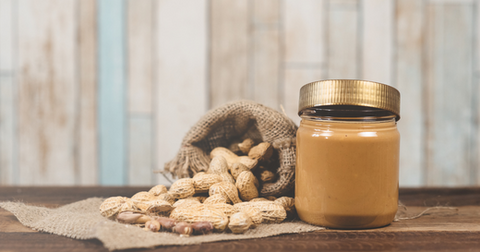
Introduction
Tea has been a part of our lives for as long as we can remember. Maybe you’ve seen your parents savouring a strong black tea in the morning or heard about the calming effects of green tea from a health-conscious friend.
But do you know? Both teas come from the same plant—Camellia sinensis—but their journey from leaf to cup takes different paths. This difference in processing gives them their unique flavours, benefits, and uses.
Today, we’ll help you uncover the key differences between green tea and black tea so you can find your perfect cup.
Green Tea vs Black Tea: Journey And Processing
The Journey of Green Tea
Green tea traces its roots back over 4,000 years to ancient China, where it was initially revered as a medicinal beverage and later became a symbol of vitality and wellness. Its journey continued to Japan, where it became central to Zen Buddhism and the traditional tea ceremony, a ritual embodying mindfulness, harmony, and simplicity. Today, green tea is celebrated globally for its health benefits and versatility. Its antioxidants and calming properties make it a favorite among wellness enthusiasts, with modern innovations like matcha lattes, smoothies, and even skincare products further enhancing its appeal
Green Tea Processing
Green tea is minimally oxidized. After being plucked, the leaves are steamed or pan-fried to lock in their natural green color and antioxidants.
The Journey of Black Tea
Black tea gained prominence during the colonial era due to its robust flavor and long shelf life, which made it a valuable commodity for international trade. It became a cornerstone of British culture, symbolizing sophistication through afternoon tea traditions and classic pairings with milk and sugar. In India, black tea took on a unique identity as masala chai, a spiced beverage deeply ingrained in daily life. Today, black tea remains a beloved staple worldwide, appreciated for its bold flavor and energizing qualities. Whether enjoyed as spiced chai, iced tea, or a classic hot brew, black tea.
Black Tea Processing
Black tea, on the other hand, undergoes full oxidation. This process turns the leaves dark and gives black tea its bold flavor and deep color.

Flavor Profiles
Green Tea
Green tea is light, grassy, and often carries hints of sweetness or umami. It’s refreshing and pairs wonderfully with sushi, salads, or light snacks.
Black Tea
Black tea has a strong and bold flavor with a hint of malt-like sweetness, similar to toasted grains. Sometimes, it can taste slightly dry or tangy, leaving a crisp feeling in your mouth. Its boldness makes it perfect for pairing with cookies, scones, or hearty breakfasts.
Health Benefits of Green Tea and Black Tea
Boosting Metabolism and Heart Health
- Green Tea: Packed with catechins, particularly EGCG, known for fighting free radicals and boosting metabolism.
- Black Tea: Contains theaflavins, which support heart health and improve cholesterol levels.
Energy Levels and Focus
- Green Tea: Contains 30-50 mg of caffeine per cup, offering a mild energy boost. Its L-theanine content promotes calmness, making it perfect for gentle focus and relaxation.
- Black Tea: Contains 40-70 mg of caffeine per cup, providing a stronger energy kick. Ideal for a morning or mid-day pick-me-up, it offers a balanced experience.
Relaxation vs. Stimulation
- Green Tea: The L-theanine in green tea boosts alpha brain waves, promoting calmness and reducing stress. It balances caffeine's effects, providing relaxation with gentle focus.
- Black Tea: Its higher caffeine content provides a strong energy boost by stimulating the central nervous system. It enhances alertness and focus with a gradual release, ensuring sustained energy without sudden crashes.
Supporting Healthy Weight
- Green Tea: Rich in catechins, particularly effective for fat oxidation and supporting weight loss.
- Black Tea: Also supports weight loss, though its benefits are less pronounced compared to green tea.

How To Get The Most Of It
Green Tea
Green tea is great in the morning or afternoon. It’s also perfect after a meal to aid digestion.
Black Tea
Black tea shines as a morning pick-me-up or a mid-day energy booster. Its robust flavor makes it ideal for chai or iced tea.

Side Effects Of Green Tea And Black Tea
While both green tea and black tea have numerous benefits, excessive consumption can lead to side effects. Let’s explore these to help you enjoy your tea mindfully.
Side Effects Of Drinking Green Tea
- Caffeine Sensitivity: Too much green tea can lead to restlessness, insomnia, or jitteriness due to its caffeine content.
- Iron Absorption Issues: The tannins in green tea can interfere with iron absorption, especially when consumed with meals.
- Stomach Irritation: Drinking green tea on an empty stomach may cause nausea or discomfort in some individuals.
Side Effects Of Drinking Black Tea
- Increased Caffeine Intake: Black tea has more caffeine, which can lead to headaches, irritability, or sleep disturbances if consumed in excess.
- Stained Teeth: Frequent consumption of black tea may lead to discoloration of teeth over time.
- Dehydration: Due to its diuretic properties, excessive black tea might cause mild dehydration if not balanced with water intake.
Myth Busters About Green Tea and Black Tea
Myths About Green Tea
-
Myth: "Green tea always tastes bitter."
Truth: Bitter taste comes from over-brewing. Use lower water temperatures (70-80°C) and steep for 2-3 minutes to enjoy its smooth flavor. -
Myth: "Green tea is caffeine-free."
Truth: Green tea contains caffeine, though in lower amounts than black tea, providing a gentle energy boost. -
Myth: "Drinking green tea guarantees weight loss."
Truth: While green tea can support metabolism, weight loss depends on diet, exercise, and overall lifestyle.
Myths About Black Tea
-
Myth: "Black tea is unhealthy because of its caffeine."
Truth: Black tea has moderate caffeine levels and is rich in antioxidants, making it a healthy energy booster when consumed in moderation. -
Myth: "Black tea stains teeth permanently."
Truth: While it may cause temporary discoloration, regular brushing and proper oral hygiene can prevent stains. -
Myth: "Black tea causes dehydration."
Truth: Black tea has a mild diuretic effect but doesn’t dehydrate you if consumed as part of your daily fluid intake.
Who Should Choose Which?
Green Tea
Choose green tea if you prefer a lighter flavor and want a relaxing drink with a gentle caffeine boost.
Black Tea
Go for black tea if you love bold flavors and need a stronger energy kick.
Conclusion
Both green tea and black tea have unique qualities. Green tea is your companion for calm, while black tea fuels your day with boldness.
Try them both and see which one becomes your favorite. Or better yet, keep both in your pantry and enjoy them depending on your mood!
General FAQs About Green Tea vs. Black Tea
Q- Can green tea be used for skin whitening?
A- Green tea contains antioxidants that may help brighten the skin and reduce pigmentation, making it a popular natural remedy for skin whitening.
Q- How much green tea should I drink daily?
A- It’s recommended to drink 2-3 cups per day to enjoy the benefits of green tea without experiencing side effects from caffeine or tannins but People with specific health concerns (e.g., anemia, pregnancy, caffeine sensitivity etc) may need to limit green tea or consult a healthcare provider.
Q- Does green tea help with acne?
A- The anti-inflammatory and antioxidant properties of green tea can help reduce acne and improve overall skin health.
Q- Can green tea be consumed during the first trimester of pregnancy?
A- Moderate consumption is usually safe, but it’s crucial to monitor caffeine intake and consult a doctor to avoid potential risks.
Q- Does black tea improve digestion?
A- Yes, black tea contains tannins that can soothe the digestive system and promote better gut health.
Q- Can black tea help reduce stress?
A- Black tea contains L-theanine, though in smaller amounts than green tea, which may help reduce stress while enhancing focus.
Q- What are the benefits of drinking black tea with milk?
A- Adding milk to black tea can create a balanced flavor and provide calcium, but it may slightly reduce the absorption of antioxidants.
Q- Is decaf black tea a good alternative?
A- Decaf black tea retains most of the antioxidants and flavor of regular black tea but eliminates the stimulating effects of caffeine, making it a great option for caffeine-sensitive individuals.








Comments (0)
There are no comments for this article. Be the first one to leave a message!